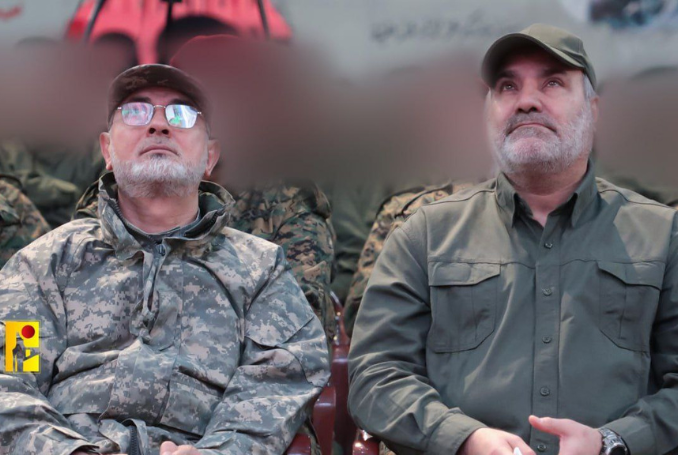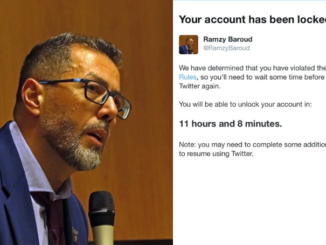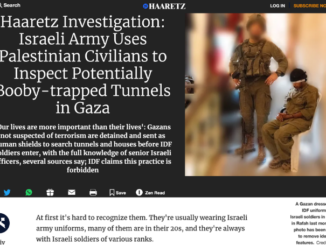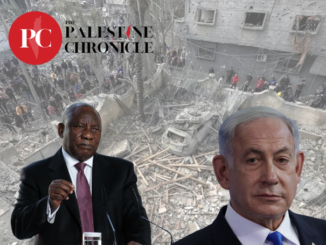
The Lebanese movement Hezbollah announced the assassination of two military commanders and 14 fighters in an Israeli airstrike on Beirut’s southern suburbs on Friday.
Prominent Hezbollah military leaders Ahmed Wehbe and Ibrahim Aqil were among those killed in the brutal Isreali aggression in Beirut’s southern suburbs on Friday.
In a statement, the Lebanese movement Hezbollah said that both leaders were killed “on the path to Al-Quds following a treacherous Israeli assassination operation.”
Who was Ahmed Wehbe?
Ahmed Mahmoud Wehbe, also known as Hajj Abu Hussein Samir, was born on November 1, 1964, in Adloun, southern Lebanon.
He joined the Islamic Resistance at its inception and actively participated in numerous military operations during the Israeli occupation of southern Lebanon.
In 1984, Wehbe was imprisoned by the Israeli forces. He later became one of the field commanders involved in the notable Ansariyah ambush in 1997.
Brief summary about the martyred leader Ahmad Mahmoud Wehbi "Hajj Abu Hussein Samir"
[Thread] pic.twitter.com/Vu92yLouNt— aya (@political_aya__) September 20, 2024
Over the years, he held various leadership positions within Hezbollah, particularly in the Central Training Unit, where he served until 2007.
From 2007 to 2012, he took on the responsibility of training within the Radwan Force, a specialized unit of Hezbollah. Following this period, he led the Central Training Unit until 2014, significantly contributing to the development of human resources across different formations of the Islamic Resistance.
By early 2024, Wehbe had become the leader of the Radwan Force.
During the ongoing war, he led the Radwan Force’s military operations on the Lebanese front since the beginning of the battle of the Al-Aqsa Flood. After the martyrdom of Commander Hajj Wissam Al-Tawil, Wehbe resumed leadership of the Central Training Unit.
Who was Ibrahim Aqil?
Ibrahim Aqil, born on December 24, 1962, in Bednayel (Bekaa), was a prominent figure in the Lebanese resistance movement.
He was part of the founding generation of the group and played a significant role during the early 1980s confrontations against the Israeli invasion of the city. By the early 1990s, Aqil had assumed responsibility for central training within Hezbollah, significantly contributing to the development of the organization’s human capabilities.
In the mid-1990s, he became Chief of Staff of the Islamic Resistance and later took charge of the Jabel Amel Operations Unit in 1997.
The Islamic Resistance in Lebanon announced the martyrdom of the great leader Ibrahim Aqil (Hajj Abdul Qader) following the path of his brothers.
The Resistance said that the great leader always deserved to receive this high divine honor following a blessed life full of jihad,… pic.twitter.com/XbfhptdrBb
— Al Mayadeen English (@MayadeenEnglish) September 20, 2024
He directly led several strategic operations during this period. Aqil was instrumental in establishing the Operations Department of the Islamic Resistance and, starting in 2008, served as Deputy to the Secretary-General for operations affairs and was appointed a member of the Jihadist Council.
Aqil was one of the key commanders during the 2006 Israeli aggression on Lebanon, overseeing the establishment and leadership of the Radwan Force within the Islamic Resistance.
He also played a pivotal role in planning and managing operations against Takfiri groups on Lebanon’s eastern borders and in areas like Qusayr, Qalamoun, and other parts of Syria.
During the ongoing conflict, Aqil supervised the Radwan Force’s military operations on the Lebanese front since the beginning of the battle of the Al-Aqsa Flood.
Beirut Massacre
Israeli media outlets disclosed details of the events leading up to the assassination.
The Israeli radio reported that the operation had been planned and approved by Chief of Staff Herzi Halevi, based on intelligence indicating a meeting of the Radwan Brigade’s leaders.
The Israeli Channel Kan stated that Halevi gave the green light for Aqil’s assassination during a meeting with Northern Brigade leaders on Friday morning.
A Lebanese security source corroborated this, reportedly telling Al-Jazeera that the Israeli raid targeted a leadership meeting of the Radwan Force in Hezbollah, which included over 20 people.
The source further revealed that Israeli fighter jets launched at least four missiles, destroying the building, penetrating its parking lot, and reaching the meeting place located on the second underground floor. Several of the meeting participants were reported injured.
The Lebanese Ministry of Health reported that 31 people were killed and approximately 68 were wounded in the attack, which targeted two residential buildings in the Al-Jamous area.
(PC, AJA)









Why don’t you mention that Aqil was wanted by the USA for massacres of greater than 230 US and French citizens? Isn’t that important context? This is literal propaganda.
The US cares ONLY about its citizens being “massacred” when those doing the “massacring” belong to countries or forces labeled official enemies of the US by the State Department, etc. When US citizens are massacred or assassinated by its own declared ‘allies’, e.g. the Zionists, the US could care less. The US is the oppressor of Arab peoples. Those fighting back, against great odds (at least, to date) have every right to resist Western imperialism in their countries. To answer your question posed by your first four words, THAT’S WHY.
‘By the early 1990’s, Aqil had assumed responsibility for central training within Hezbollah’. That represents three decades of mentoring and tutoring future combatants and leaders. They will be missed but quickly replaced. The sewer apes of occupied Palestine will not deter this wily and fierce opponent. Time will tell this.
Seems to me, if they are not already engaged along these lines, that Hezbollah needs to establish a ‘crack’ department for finding spies among their own population that may be tipping Israel off on finding the whereabouts of these military commanders. In addition, they need to get top people to do their best to counter the Israeli high-tech warfare edge. At this point not so match as to able to match Israeli attacks inside Lebanon with Hezbollah warfare in Israel, but just to stop the Israeli high-tech warfare.